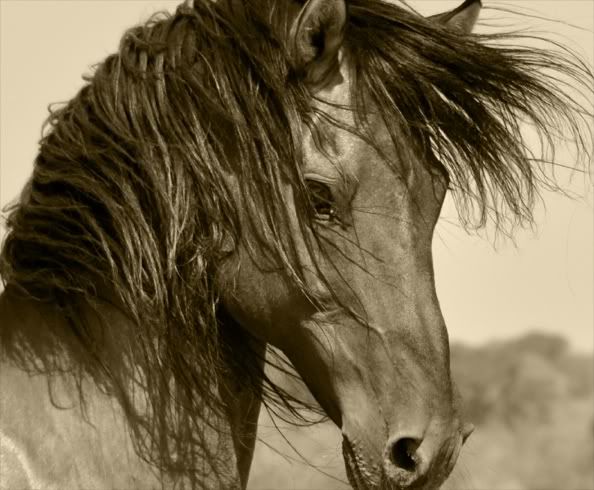Post by Michelle Clarke on Oct 2, 2011 17:30:42 GMT -5
Copied from Facebook:
Have YOUR Adopted Mustang/s Genetically Tested for Specific Breeds, Texas A&M University
As many of you may know, wild mustangs are a re-introduced native species to North America, and around the ice age it is believed that many became extinct (no one knows exactly why but hunting by early man is also suspect), but not without some crossing the Bering Land Bridge during the era, and over into Europe and Asia. Spanish explorers brought horses over to North America, where many have found their way into the wild for whatever reason, and why also many mustangs have the Spanish Barb appearance. Since the European settlers, domesticated horses have also escaped or have been turned loose over the last couple hundred years, and as a result, we have a large variety of wild horses resembling many breeds we are familiar with domestically. But as you know what I say, once born wild they are wild.Now there is a way to genetically test your own adopted mustang, to understand it's relatable genetics. In communicating with Dr. Cothran, there is an ongoing study on the genetic makeup of many of our wild horse herds. ~Mustang Meg
If you would like to add your horse's DNA results to the current body of knowledge as well as your own, here is more information:
To do a DNA test on your mustangs, it is $25 per animal. It can tell specifically what breeds are present in your mustangs. It may be able to show what general type of horse is present, such as Spanish or draft or something that is a general category like that. Sometimes it does not give any clear answer which could be due to the horse a generic type or be highly mixed, or it could happen for unclear statistical reason. However, if you want to give it a shot we need about 35 mane or tail hairs pulled so the follicle remains attached.
~ Gus
Mail to the address below telling what you want done. Checks should be made payable to TAES.
E. Gus Cothran, Ph.D.
Equine Genetics Lab.
VIBS, CVM
Texas A&M University
TAMU 4458
College Station, TX 77843-4458
(979) 845-0229
GCothran@cvm.tamu.edu
_______________
Would be interesting to send some hair samples in from the latest Kigers.
Have YOUR Adopted Mustang/s Genetically Tested for Specific Breeds, Texas A&M University
As many of you may know, wild mustangs are a re-introduced native species to North America, and around the ice age it is believed that many became extinct (no one knows exactly why but hunting by early man is also suspect), but not without some crossing the Bering Land Bridge during the era, and over into Europe and Asia. Spanish explorers brought horses over to North America, where many have found their way into the wild for whatever reason, and why also many mustangs have the Spanish Barb appearance. Since the European settlers, domesticated horses have also escaped or have been turned loose over the last couple hundred years, and as a result, we have a large variety of wild horses resembling many breeds we are familiar with domestically. But as you know what I say, once born wild they are wild.Now there is a way to genetically test your own adopted mustang, to understand it's relatable genetics. In communicating with Dr. Cothran, there is an ongoing study on the genetic makeup of many of our wild horse herds. ~Mustang Meg
If you would like to add your horse's DNA results to the current body of knowledge as well as your own, here is more information:
To do a DNA test on your mustangs, it is $25 per animal. It can tell specifically what breeds are present in your mustangs. It may be able to show what general type of horse is present, such as Spanish or draft or something that is a general category like that. Sometimes it does not give any clear answer which could be due to the horse a generic type or be highly mixed, or it could happen for unclear statistical reason. However, if you want to give it a shot we need about 35 mane or tail hairs pulled so the follicle remains attached.
~ Gus
Mail to the address below telling what you want done. Checks should be made payable to TAES.
E. Gus Cothran, Ph.D.
Equine Genetics Lab.
VIBS, CVM
Texas A&M University
TAMU 4458
College Station, TX 77843-4458
(979) 845-0229
GCothran@cvm.tamu.edu
_______________
Would be interesting to send some hair samples in from the latest Kigers.


